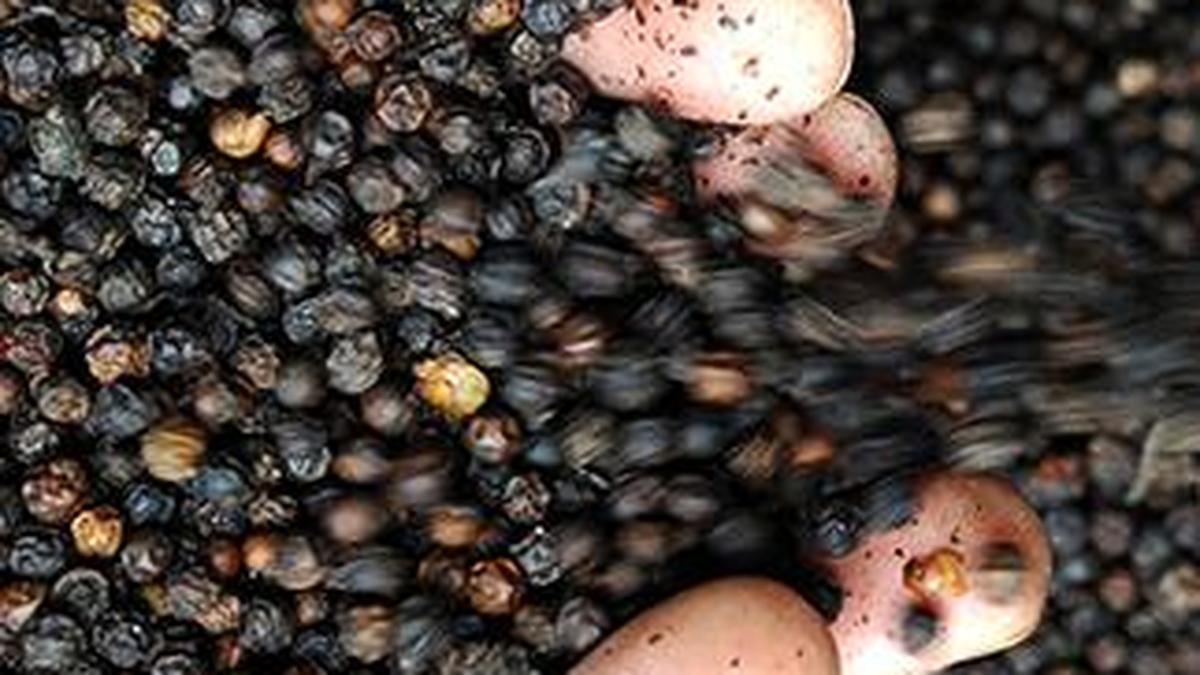Farmers, traders oppose price monitoring system for black pepper
The Food and Consumer Affairs Ministry’s decision to cover black pepper under the Price Monitoring System (PMS), with effect from August 1, has put the farming community in a mess. They demanded that pepper should be removed from the Essential Commodity Act or Price Index Commodity, as it hardly affects the direct consumer since its intake is minimal per person.
The Kerala chapter of Indian Pepper and Spice Traders, Growers, Planter Consortium raised a concern, saying that there could be more restrictions or limits for holding stocks of pepper which may be announced sooner or later.
With pepper prices ruling higher in the global market and there is a wide gap between wholesale and consumer pack prices, they fear that the government may introduce several measures to curb the same. The price difference between the wholesale price and the ultimate packed price of whole pepper and ground pepper reflects a large difference which needs to be looked into.
Emmanuel Nambusseril, Chairman of All India Spices Exporters Forum wondered how pepper is brought under the Essential Commodities Act as it is only a spice used to give taste to food. Pepper is only the least used commodity in culinary. “We can understand offering MSP for pepper as it will benefit farmers. But, including it under Essential Commodities Act is not a sensible decision”, he said.
According to the Consortium, the industry voluntarily needs to monitor the same by its own preventive methods and urged the government to keep pepper out of the Essential Commodity Act or PMS.
Indian pepper farmers production cost is on the higher side compared to other producing countries by taking into account labour and fertilizer inputs. This has forced the farming community to look for higher revenue for his produce. Besides, imports from other countries are also adding to the stock of importers and local dealers. If curbed to protect the price, pepper may end up in brisk selling.
With the changing food habits and mushrooming of ready-to-eat outlets and rising pickle manufacturing, the overall consumption of pepper has gone up in the domestic market. Many manufacturers hold 4 to 6 weeks buffer stock of pepper to ensure production continuity and uninterrupted working of their plant.
Considering all these aspects, the Consortium urged the Ministry to remove pepper from the price monitoring system.
The government notification said that the increase in coverage of food items under daily price monitoring will play a crucial role in policy interventions to stabilize price volatility in food items and to control the overall inflation.
